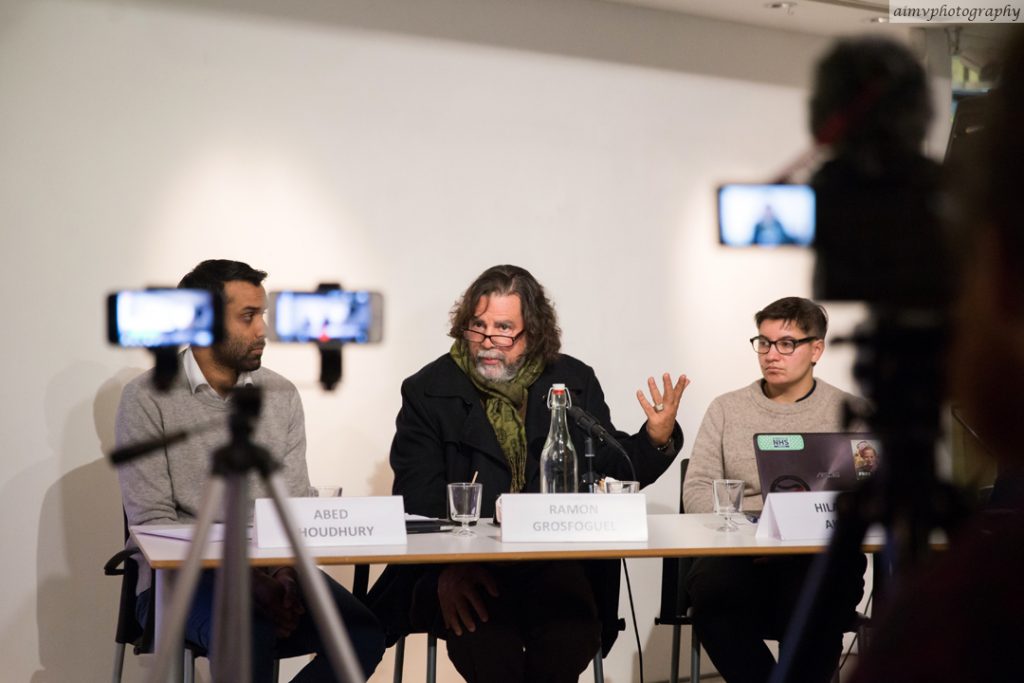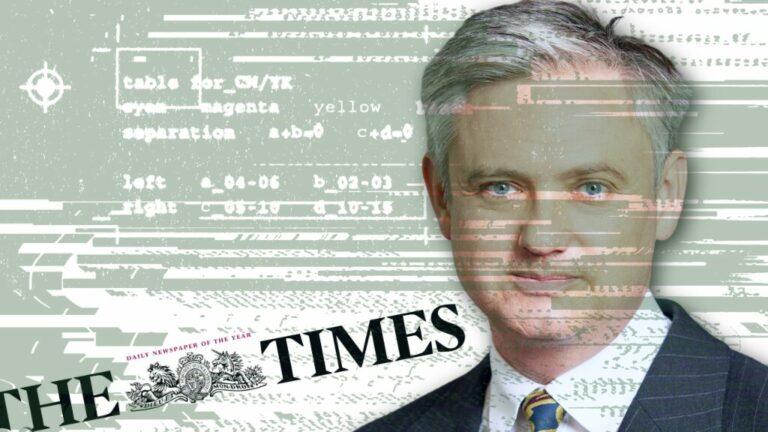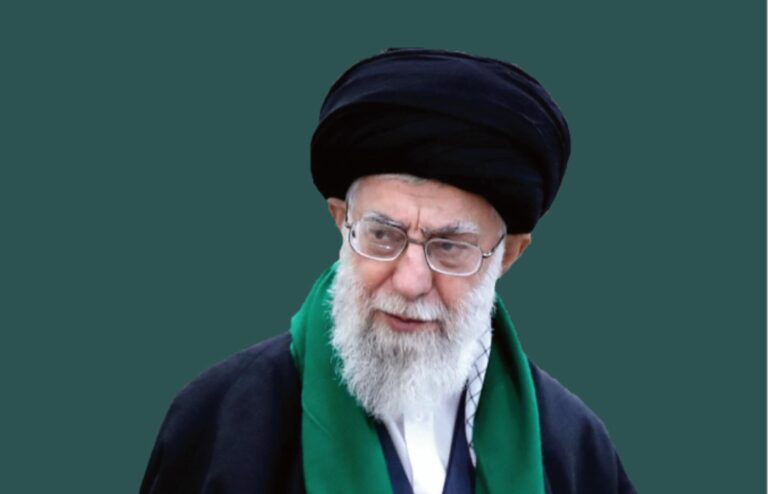IHRC’s annual Islamophobia Conference took place for the fifth consecutive time on 8 December 2018 at the P21 Gallery in London. The location was particularly fitting as this year’s theme was ‘Islamophobia and Silencing Criticism of Israel.’ The event was co-organised by Scotland Against Criminalising Communities and their coordinating event was held in Scotland on 15 December.
Watch all the videos of the London event below or continue reading the report of the event.
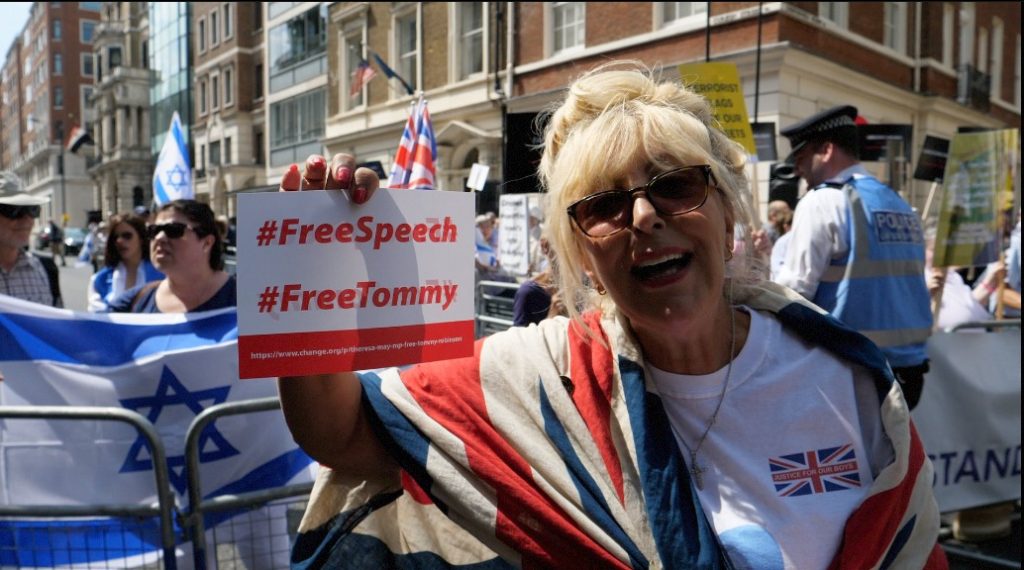
The theme of the conference focused on the racist nature of Zionism and the inevitable marriage between the far-right and Zionist activists. Pro-Israel advocates see an overlap between their hatred of the Arabs whom they wish to displace in Palestine with the far-right’s hatred of Muslims. It is why you see EDL members attend pro-Israel events to deny the right of Palestinian self-determination and why you can see Zionist Federation placards flown at events where far-right racists shout “Allah is a Peado” and “Muslims rape our children”.
The event was well-attended by numerous activists, academics and professionals who all came together in concern for the way those who want to support Palestine are being silenced and restricted – over 150 people registered to attend. The first panel of the day featured Professor Ramon Grosfoguel. Ramon is a professor in the Department of Ethnic Studies at the University of California at Berkeley and a research associate of the Maison des Science de l’Homme in Paris. He has published extensively in the fields of Political-Economy of the World-System, International Migration and Decolonial Studies. Hilary Aked also featured – a freelance writer and researcher whose PhD thesis examined the UK Israel lobby and its responses to the Boycott, Divestment and Sanctions (BDS) movement.
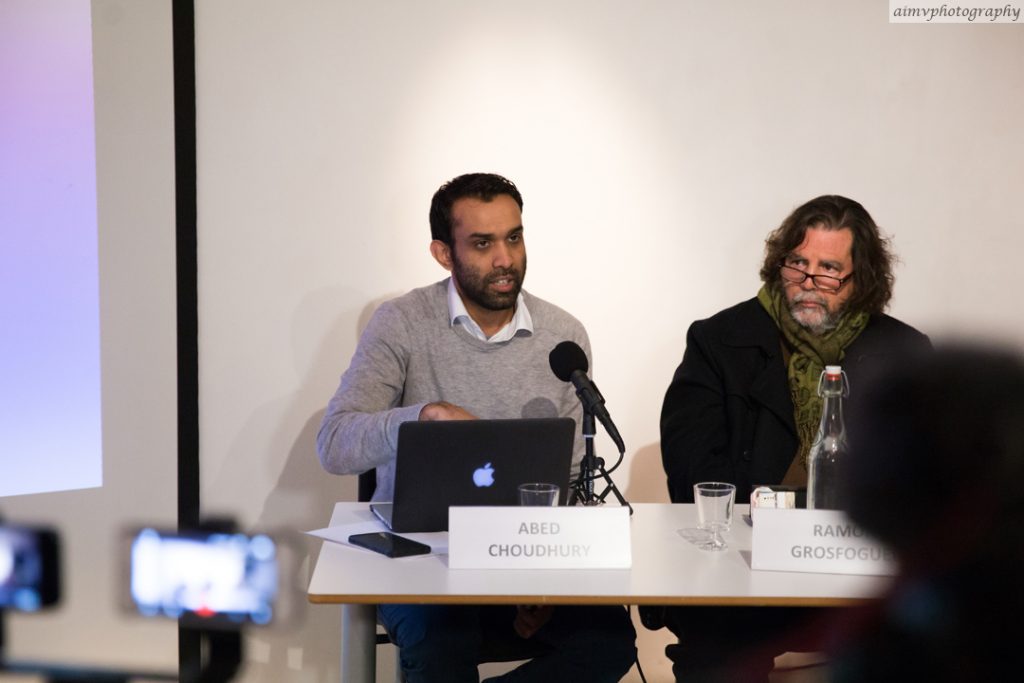
Chairing the panel was IHRC’s Abed Choudhury who is also the head of IHRC Legal & Advocacy. IHRC has been witness to numerous cases of those who have suffered detrimentally due to their support of Palestine especially through the pernicious PREVENT programme. IHRC has already done detailed work on this subject and also holds ‘Know Your Rights’ Workshops.
After Abed introduced the panel, both speakers gave presentations on the theme. Hilary Aked began by discussing Zionism. Hilary stated that Zionism was a political issue and not one that should be relegated to ethno-religious identities. It is an ideology that has been characterised by ethnic cleansing, imperialism and settler colonialism. Particularly within the context of Palestine itself, Zionism is de facto Islamophobia and as such there is no such thing as ‘anti-racist Zionism.’ Movements that hope to mislabel the ideology as being possibly progressive are sadly mistaken.
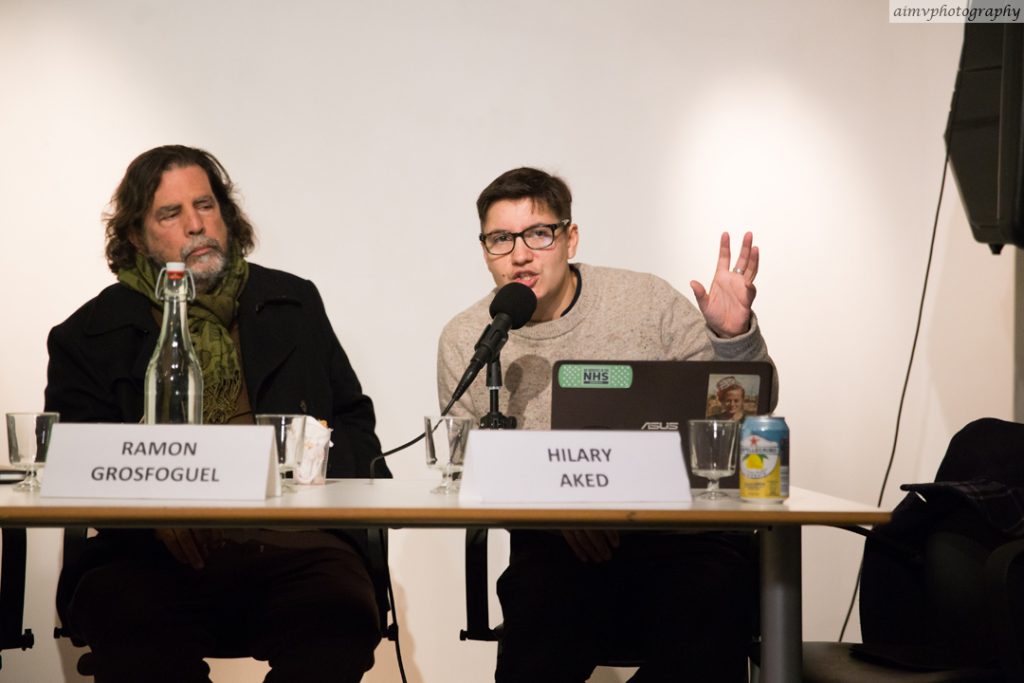
Zionism as a political project would see Islamophobia as being hugely advantageous to its ultimate goals and aims. Sympathy for Muslims at home (in the UK or USA for example) and understanding for the discrimination faced there would only encourage sympathy for Muslims abroad and an increased awareness. People would have further clarity on Israel and its acts of terror. On the other hand, an environment of hate towards Muslims at home is certainly not helpful to Muslims abroad either and may lead many to think that Israel is justified in its behaviour. What Israel calls the ‘demographic threat’ is being transposed on to the UK, USA and elsewhere.
Hilary reflected on the theme of the conference and one of the main talking points: the way Zionism sits alongside antisemitism on the Far Right. The presentation was ended with a clear statement: we need to build an anti-racist movement that stands against multiple forms of discrimination – against Islamophobia, antisemitism, xenophobia, anti-black racism, police brutality, anti-migrant sentiment, etc.
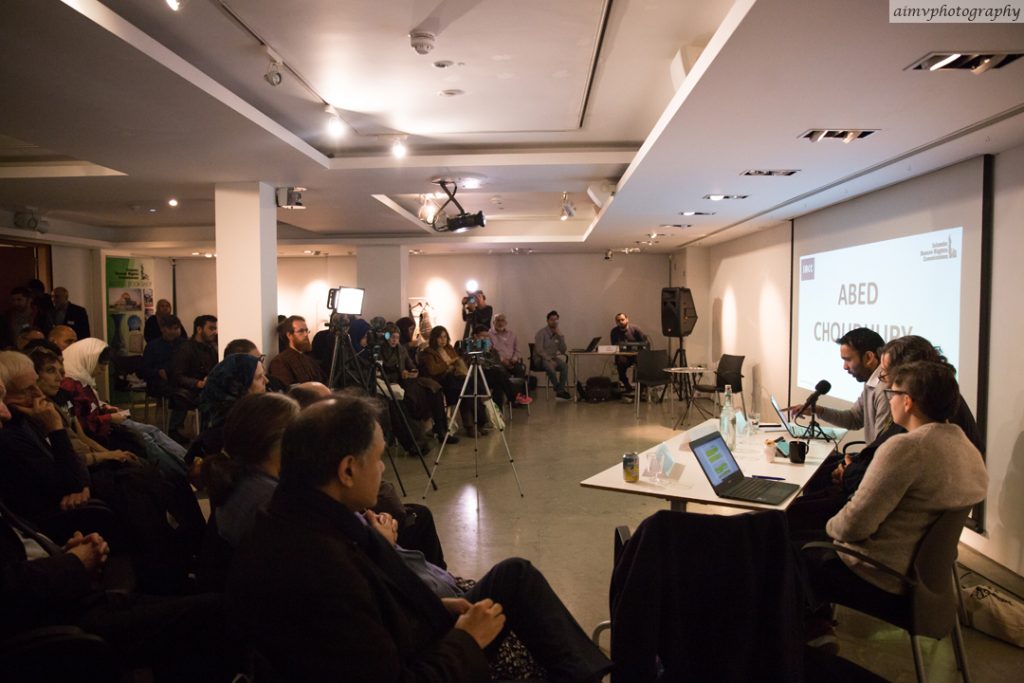
Next Professor Ramon Grosfoguel began his presentation. He started by very clearly stating that Israel is an extremist state that practices and promotes terrorism. It is paradoxical. He outlined the double standards that are currently in place. For example one can freely send and raise money for the IDF (with many celebrities recently attending and promoting a fundraiser with the exact aim) but those doing the same for Hamas or other forms of Palestinian resistance are immediately labelled as ‘terrorists’ or ‘terrorist supporters.’ People across the board are fearful of announcing their support for Palestine lest they too are painted with this unsavoury and undeserved brush.
There is an institutional framework in place to criminalise the supporters of Palestine. Surely this goes against our democratic rights? Israel lends its direct support to terrorist organisations and regimes yet this is not widely spoken of; no one gets taken to court or imprisoned, etc. Ramon discussed the way Israel micromanages every person, group and institution that criticises Israel. The Israeli lobby is automatically aware of every kind of criticism – even if it has no real impact. Ramon mentioned the way the student council in Berkley passed a motion in support of Palestine – one that was purely symbolic and did not have actual real life implications. However, they were immediately hounded for this expression of support. There is always a response to criticisms of Israel regardless of who they are from. In particular those who are proponents of BDS will always find themselves under fire. Artists, musicians and actors who come out in support of Palestine are also labelled ‘anti-Semitic.’ Israel winning public support and opinion in the West is a major strategic operation.
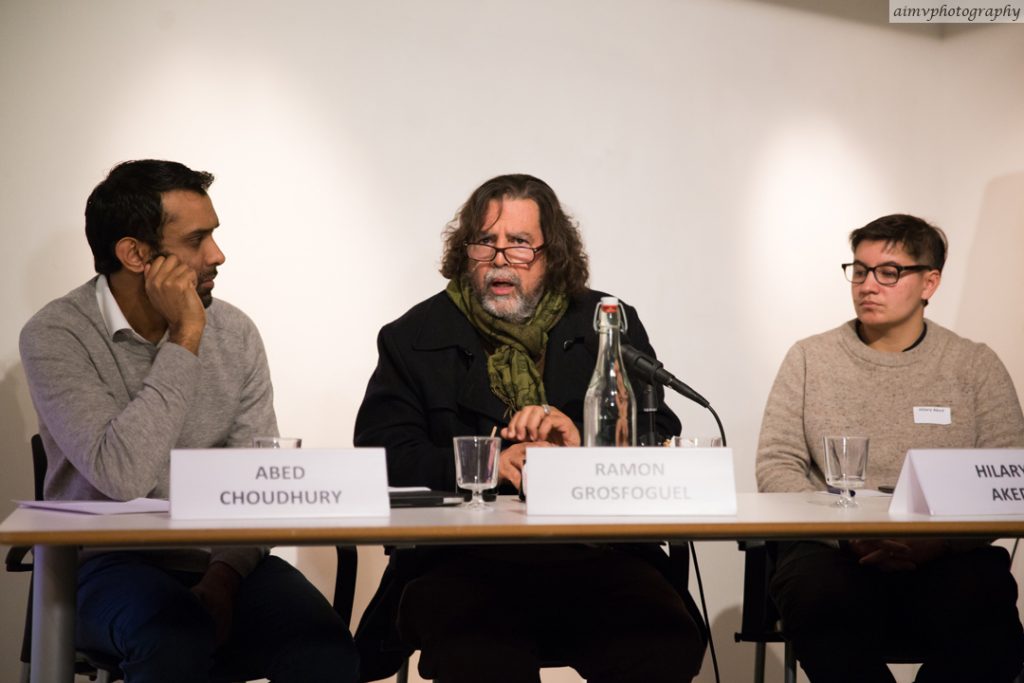
People should be allowed to be critical of Israel. Criticising Britain does not make you anti-British so why would criticising Israel mean that you are then being anti-Semitic?
The panel then broke for questions from the audience where the room expressed a variety of opinions. The panel attempted to answer questions about how to cope with the level of demonisation that exists at the moment and the insidious control over Western affairs that the state of Israel currently exhibits.
After answering questions the conference convened for tea and refreshments. Following which the audience was treated to the second panel of the day. The panel saw Les Levidow who helped to set up the Campaign Against Criminalising Communities (CAMPACC) in early 2001. Previously he was involved in other campaigns against criminalisation, e.g. against the Prevention of Terrorism Act 1974, the Italy ’79 Committee, support for the 1984-85 miners’ strike, and the Free Samar and Jawad Campaign. He also has opposed the Israeli Occupation through various UK campaigns such as Jews for Boycotting Israel Goods (J-BIG) and the British Committee for the Universities of Palestine. Also speaking on the panel was Houria Bouteldja. Houria is a Franco-Algerian political activist. She is spokesperson for the Party of Indigenous People of the Republic (PIR).
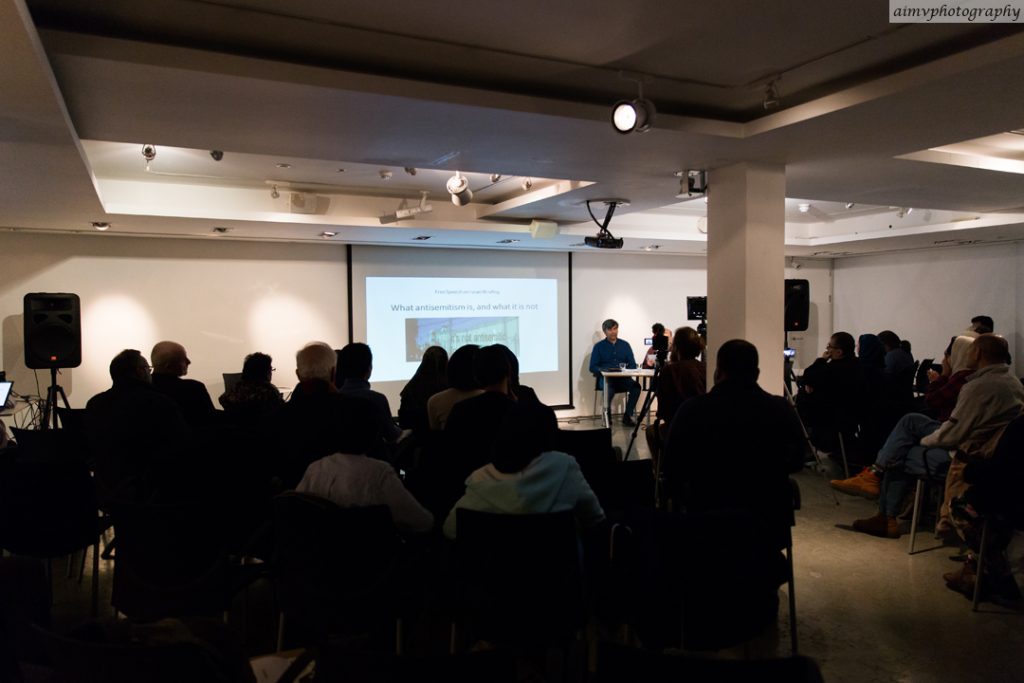
The panel were introduced by Raza Kazim who is also Head of Campaigns at IHRC. He began his introduction by mentioning the importance of standing against oppression and striving for justice. Houria then began her presentation which focused on the subject of ‘philosemitism’ which she says is a subtle and sophisticated form of the nation state’s antisemitism. She spoke of the way the nation state has to define itself by selecting a dominant group – the white Christians who are the privileged few in opposition to everyone else. Philosemitism means Jews are valued in terms of their contribution to the Zionist/Israeli movement. The Jewish people are used as a tool for Israeli political interests.
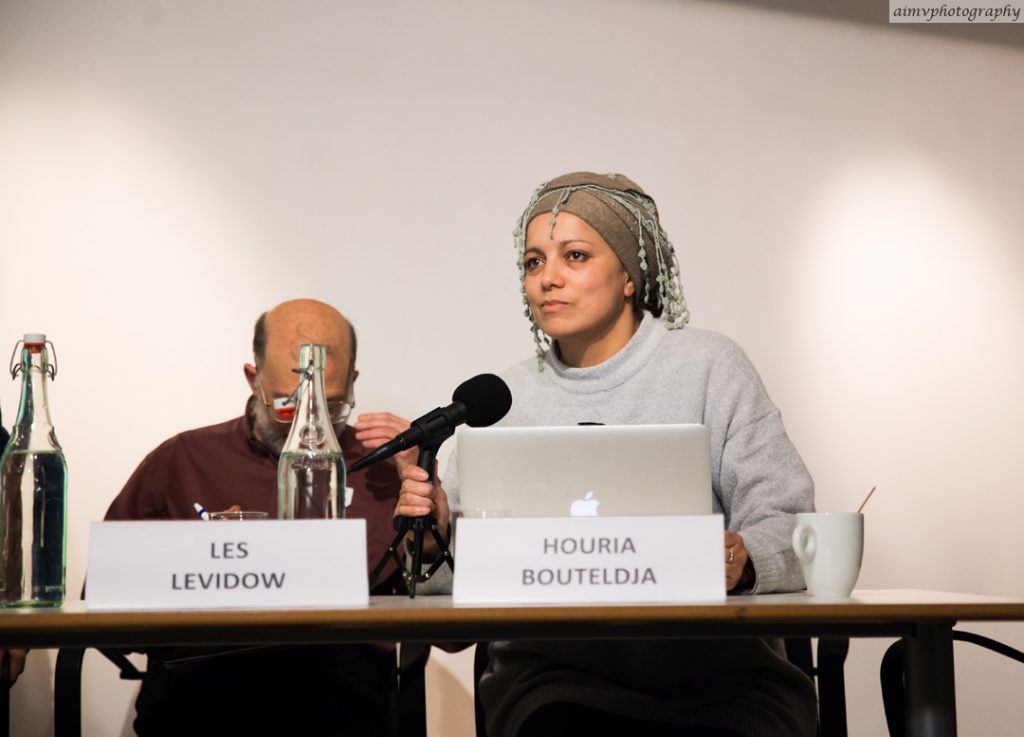
The final of our four speakers on the day, Les Levidow gave his presentation. He spoke of the way ‘community cohesion’ is used as a tool to mask the state’s commitment and allegiance to Israel. He mentioned the Al Jazeera documentary ‘The Lobby’ which showcased Israeli agitators in various English institutions including the Labour Party. The Labour Party in particular found itself in the midst of a storm this summer amidst claims of antisemitism. Les described this as a way to destabilise the Labour Party leadership due to its Pro-Palestine stance. The IHRA definition of antisemitism – which the Labour Party was eventually forced to adopt because of mounting pressure – conflates antisemitism with anti-Zionism. Such a conflation is unfortunate because it makes criticism of the Israeli state, its practices and policies (that wreak terror, death and devastation) extremely difficult. However that is the current climate we exist in at the moment. As has been discussed since the opening of the Islamophobia Conference: there is a growing silencing of those who stand up for the rights of Palestine.
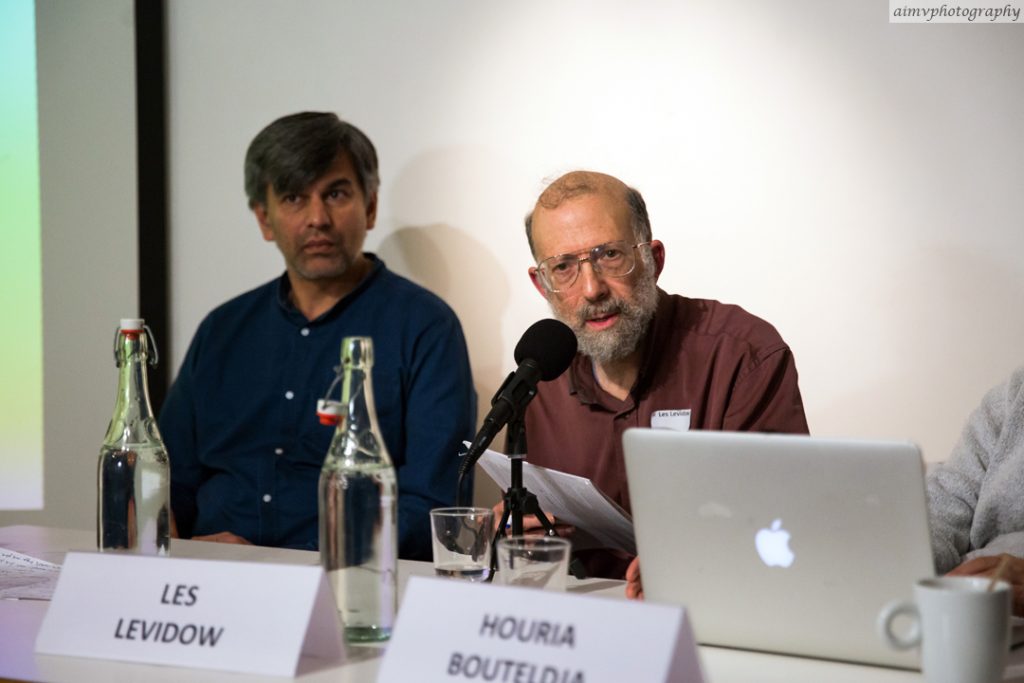
With the conclusion of Les’ presentation, the floor was once again open for questions from the audience. The panel discussed whether there was hope for optimism in terms of the media and their inherent bias and racism. Houria felt the future was bleak but Les said it was important to make strides. Other topics such as PREVENT, state Islamophobia, unity amongst oppressed groups, etc, were also addressed in the room.
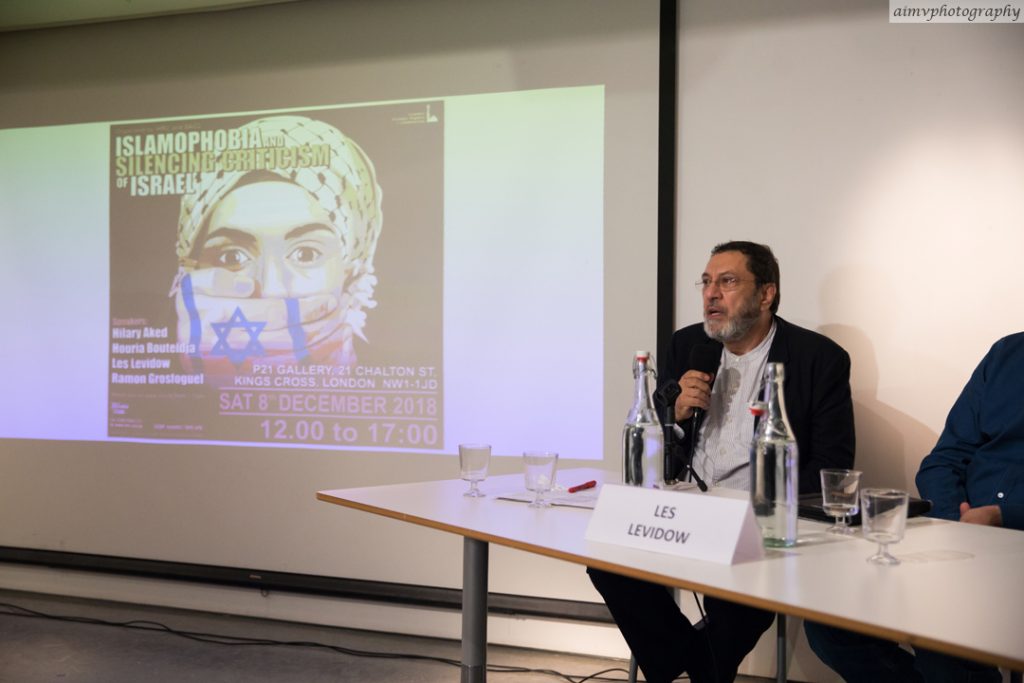
The conference was a great success with many speakers and members of the audience articulating their thoughts on the culture of silencing issues related to Palestine and why we need to stand up against it. Final remarks on the day were made by IHRC Chair Massoud Shadjareh who thanked the hugely varied audience for coming despite recent attacks in the press; threats from Zionist protesters to attend, etc. It was important to state, once again, the marriage of convenience that has occurred between those who are pro-Zionism and those who are on the Far Right. Though the Far Right remains staunchly racist – consistently expressing views that are anti-Semitic, Nazi-sympathetic, etc; the Israeli lobby is happy to stand beside them and bask in their support. Surely such a marriage is its own contradiction and proof that of the unsanitary political nature of the Zionist ideology?
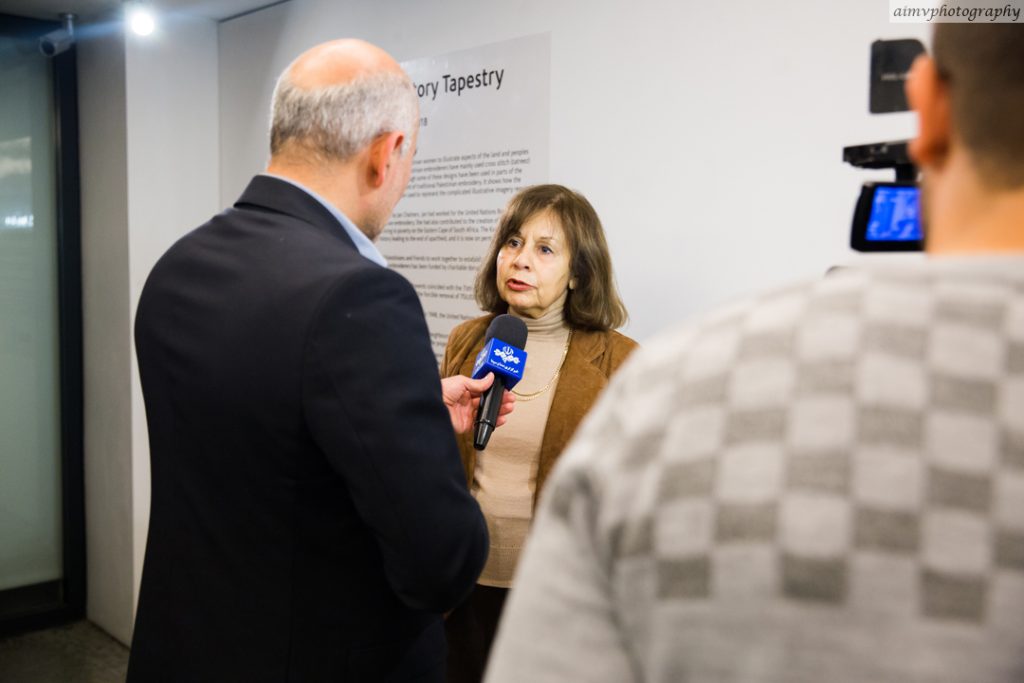
The organisation its supporters and newer attendees came together to discuss peacefully and successfully and in doing so continued to stand against the oppression facing Palestine and the insidious Islamophobia facing Muslims at home.
A gallery of photographs is available for reuse with attribution here.

